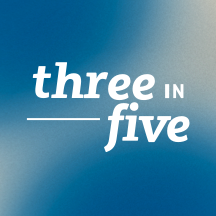Explore institutional insights

Client sign in
- Please enter a search term.
-
Insights
Stay up to date

Market update

Investor insights
-
Investments
Stay up to date

Market update

Investor insights
-
About us
Stay up to date
Learn more about our investment group

Market update

Investor insights
- Please enter a search term.
- Investments
-
Insights
- Back
- Insights
- Insights Overview
-
All insights
- Back
- All insights Overview
- Q3 2021: Investment grade private credit update
- Evaluating private credit opportunities in today’s market
- 2022 BentallGreenOak Perspective report
- The case for real estate
- The Impact of Rising Rates – LDI Client Update
- Global Investment Outlook 2022
- Investing in an inflationary environment
- Q2 2022: Investment grade private credit update
- Regulatory Update - Schedule D Part 1 (Bonds)
- Q3 2022 Investment Grade Private Credit Market Update
- Crescent Capital Markets Q3 2022 Update
- Multi-Asset Credit Strategy: October 2022 Update
- Investing into the rate-hiking cycle
- Multi-Asset Credit Strategy: November 2022 Update
- Multi-Asset Credit Strategy: December 2022 Update
- 2023 Global Investment Outlook
- Q4 2022: Investment Grade Private Credit update
- Multi-Asset Credit Strategy: January 2023 Update
- Fireside chat: Seize new opportunities in bonds and structured credit
- Q1 2023: Investment Grade Private Credit update
- Q1 2023: Crescent Capital group market commentary
- Crescent experts Q&A: How innovation will drive private debt forward
- June 2023: Private Credit Insights
- The BMA’s upcoming regulatory review
- The Elusive Recession - Commentary by Crescent Capital Markets
- 2023 Mid-year Global Investment Outlook
- Commercial mortgage-backed securities are in the spotlight again, but this isn't 2008
- Q2 2023: Investment Grade Private Credit update
- Cautious optimism
- Q3 2023: Investment Grade Private Credit update
- Narrowly syndicated credit: yield opportunities in an underexplored niche
- Don't rest yet, the recession will rear its head in 2024. Here's how to protect your bond portfolios
- 2024 Global Investment Outlook
- Q4 2023: Investment Grade Private Credit update
- Looking under the hood at below-IG fixed income
- Q1 2024: Investment Grade Private Credit update
- Global insurance group
- Retirement plan solutions
- Sustainable Investing
- Market updates
-
Three in Five Podcast
- Back
- Three in Five Podcast Overview
- Mark Attanasio on the changing landscape of private credit
- James Slotnick on the U.S. midterm elections
- James Slotnick on the 2022 U.S. midterm elections
- Andrew and John on commonalities in investment grade private credit and narrowly syndicated bank loans
- Laila on operational considerations for investment grade private credit investors
- Cliff Corso on opportunity in the high net worth market
- Kate McKeon on sustainable investing and Net Zero
- Ben Greene on education, allyship, and the trans experience
- Melissa on the importance of the client experience
- Cristina Medina on Invest in Girls
- Steve on the Canadian P&C insurance market
- Rich and Peter on growing stress in the banking sector
- Doug on the debt ceiling
- Jim Blakemore on real estate debt
- Chris and Tim on the Special Financial Assistance Program for Taft Hartley plans
- Veronique on the evolution of LDI investing in Canada
- Chris Wright on the future of private credit
- Beth Brown on workplace burnout
- D.J. on the CMBS market
- Josh Davis on inner mastery and effective leadership
- James Slotnick on the politics of raising the U.S. debt ceiling
- Kevin Quinlan on climate change as a material investment risk
- Steve Peacher on the 10-year anniversary of SLC Management
- David Hamlin on fundamental credit research
- Michael Schnitman on alternatives in the high net worth space
- Steve Peacher reflects on challenges and milestones in 2023
- Subscribe
- About us
- Careers
- Contact us
- Newsroom
- Thank you
- U.S. | EN

Welcome!
Please select your country and language below:
Episode 67
OCTOBER 5, 2022
Sheila on coaching women in the workplace and the importance of developing leadership habits
Sheila Goldgrab, Certified Executive Coach and Managing Partner at Goldgrab Leadership, discusses how some employers are prioritizing women in leadership and how she coaches them to develop habits that support their career growth.
Steve Peacher: Hi, everybody. This is Steve Peacher, President of SLC Management. This is our next episode of “Three in Five.” I'm really excited today to be joined by Sheila Goldgrab, who is a master certified executive coach. We're going to talk about trends among forward thinking firms who are addressing the challenges that women face in the business world. Sheila's managing partner at Goldgrab Leadership. She writes for Forbes.com on leadership. She's been an advisor of the Harvard Business Review. So we're in good hands on this topic. So Sheila, thank you for taking time today.
Sheila Goldgrab: Thank you so much, Steve. I'm always pleased to be invited to talk about women's leadership, advancement, and careers. SLC is you special to me, because the people I've had the opportunity to get to know in my work.
Steve Peacher: So let's start with forward thinking firms. You know what from your point of view what our forward-thinking firms doing today?
Sheila Goldgrab: Well, you know, today is a tough time right now as employers are experimenting with prioritizing work as a design process, and they're addressing the impact of the great resignation. They're figuring out how best to do hybrid work, yet it's also an exciting time in many ways, because of the positive action some businesses are doing that is resulting in meaningful change to advance equity for women in the workplace. For example, for a long time companies were hesitant to pull KPIs to identify and track where they were and what impact their interventions were having in closing the gender gap of leadership. Now though, bold firms are doing it, and they're signaling to everyone in the company that everybody has a part in owning the challenge. And they're measuring the progress as they go. So Examples of KPIs are, how many females are in managerial positions, and what are the cost-benefit ratios of gender-based interventions to ensure their effectiveness. Some are doing great work in leveling up opportunities for women in leadership. For example, let's take hiring. Many client organizations in all sectors have made profound changes in creating diverse interview panels and scouting out diverse candidate slates. And it's nuance, too, they've also re-imagined job descriptions based on what they know about the differences between how women respond to want ads about opportunities. After thirty years of pay equity, legislation where I live, anyway, women are still being paid less than men. The gap over a lifetime has created a gulf that is near impossible for women to catch up. What's exciting, though, is there are now companies that are rectifying female salary inequities to address the low base that was a structural mistake from years back, when we lived in a world where we expected men to be the single important breadwinner and earn more. We are seeing some companies bold enough to even the playing field pay wise all at once.
Steve Peacher: Sheila I’d like to talk about a program that you developed which is called “Women Leaders Habit Lab.” You've been delivering it for us at SLC. It's new to me to hear about a program that a development program that's based on habits. And so I wonder if you could talk about why you'd create a program that for women that is focused on habits? It certainly seems to fall in that category of fresh thinking, so tell me about it.
Sheila Goldgrab: You know, as an executive coach, it was clear from like decades of supporting leaders, that they often overdo their strengths. For some it's outside their awareness. Simply put. They think: well, if it worked then, I should do more of it. Well, no. And even when leaders have awareness of what needs to change, they know to do something different. Say somebody who needs to gain visibility for their work instead of just doing the great work. They're challenging about how to keep the new behaviors going. Think about it. It's easy to do something once or twice, right, yet it's more complex to keep it going so it becomes a habit, and leaders need to demonstrate consistency to show they are flying at the right altitude at the level they are at now and are promotable to the next level. There are many unhelpful habits that are holding leaders back in their careers. Men and women both have many of the same overdone habits, by the way, that aren't serving them. But I focus on women in this program because it's women who are left behind starting from the jump from, entry level to manager, and the gap widens at every subsequent run on the hierarchy ladder. I wanted to address this with the program that would create positive change. What's new here is that we know enough now about how habits are formed and how to sustain them, that I felt the way to do. leadership development had to catch up with our new understanding of how change happens at a personal level. Knowing what behavior you need to do was never enough for anybody making personal change. Sticky is what it's about.
Steve Peacher: You know listening to your answer, I’m thinking about a couple habits that I've really had to work on, which probably emanate from what I perceive, anyway, as a strength of mine. And I would say, that is, you know I do think I’m good at jumping into getting things done. So when I see a problem, I like to fix it. I like to organize, you know, efforts to address it. But I think over time what I've realized is that has made delegating hard for me, and I've really had to focus on that and to develop that habit that by delegating you can actually get more done better. And I think I've gotten better at that. I think I formed that habit. The other one that I think I’m still working on is listening to people that are because, like my inclination is to jump in and say, “okay, here's what we have to do.” And you know, as it has been said by many, you can't learn anything if you're speaking, and I have to remember that and slow down and listen to what you have to say, and I, it's a habit that I’m still working on, and I’m getting better. But you know I’m not I'm not where I’d like to be on that one. So I guess my question here Sheila is what about yourself? What are habits that you've worked on? Given that you're so focused on this?
Sheila Goldgrab: Sure, I’m happy to share. But before I do I just want to say those two habits that you mentioned, Steve, that are yours are not uncommon. Often, I work with leaders who have one or both of those same challenges. So believe me, when I tell you that I think that since I began studying habits, I've been experimenting with new ones for myself. So, in the domain of lifestyle, I now have habits including a no sugar diet, because I do have a sweet tooth, so that's important, and I don't as I get older I really don't want to eat that way. I want to eat a lot less sugar and the habit I have in action right now in play right now is a no sugar diet which I love.
And in the domain of the leadership I ruminate far less and recover from setbacks much faster now than I ever have, and that's because I've taken it upon myself to be deliberate. Focus in on it and create other habits to upset that. And, by the way, as Steve, as you know from your own experience, forming a habit isn't a one-size fits all; and if it were as easy as duplicating how others did it, let's say, colleagues of ours, it would be an easy fix and we wouldn't need a program. But learning more about yourself as part of the series, and I invite participating women leaders to run experiments that give them new experiences that will advance their careers.
Steve Peacher: Well, I've worked on that no sugar habit myself. I know it's the right way to go. You know I like to in these by asking a personal question, and I I've got one I want to ask you that is connected to what you do. But you know we're chatting before we recorded this, and you talked during this ah session about this “Women's Leader Habit Lab,” and you obviously like to give these sessions, you like to lead them. And so you know, when you start a week, and you know you're going to be leading a session for a group of women. Why do you like it so much? Why does that? Why is that energizing for you?
Sheila Goldgrab: It's a great question, and it returns me to my purpose, which is a good thing right, especially since we're starting the next cohort this week. I guess there are many reasons. One of them is that I love who doesn't love watching light bulb moments for people as they go off. It could be that a habit that they need to do has eluded them always and learning the mechanics of how to do it is a light bulb moment for them, it could be something else. It's also watching and being part of the process where the participants get to see, what does it take to be promoted, and how small, how absolutely tiny, some actions need to be you know when you take commitment so that they discovered that it's not huge. It's not a huge task. It's a repeatable, tiny task that makes sense here. And I guess there's many more reasons, but I think I’ll cap it off by saying I love group camaraderie and I like to foster safe space where people are learning. And I've always loved groups, I always love being part of teams, and I'm really summer Camp Councillor at heart.
Steve Peacher: Well, thank you for all that. I would encourage everyone listening to form the habit of listening to “Three in Five” podcasts every week.
Sheila Goldgrab: I love it.
Steve Peacher: Really thank you for your time, Sheila. This has been great, and, thanks to everybody for listening to this episode of “Three in Five.”
Sheila Goldgrab: Thank you again.
This content is intended for institutional investors. The information in this podcast is not intended to provide specific financial, tax, investment, insurance, legal or accounting advice and should not be relied upon and does not constitute a specific offer to buy and/or sell securities, insurance or investment services. Investors should consult with their professional advisors before acting upon any information contained in this podcast. Any statements that reflect expectations or forecasts of future events are speculative in nature and may be subject to risks, uncertainties and assumptions and actual results which could differ significantly from the statements. As such, do not place undue reliance upon such forward-looking statements. All opinions and commentary are subject to change without notice and are provided in good faith without legal responsibility.



